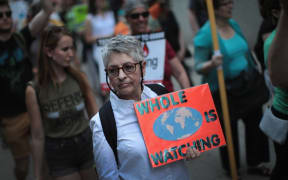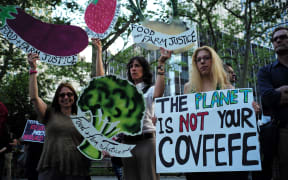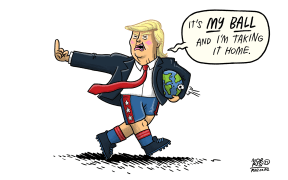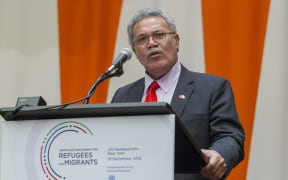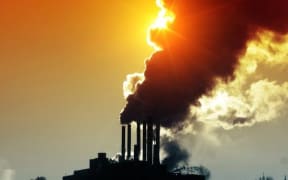India's Prime Minister and the new French President have said they will co-operate in the fight against climate change, after meeting for the first time in Russia.
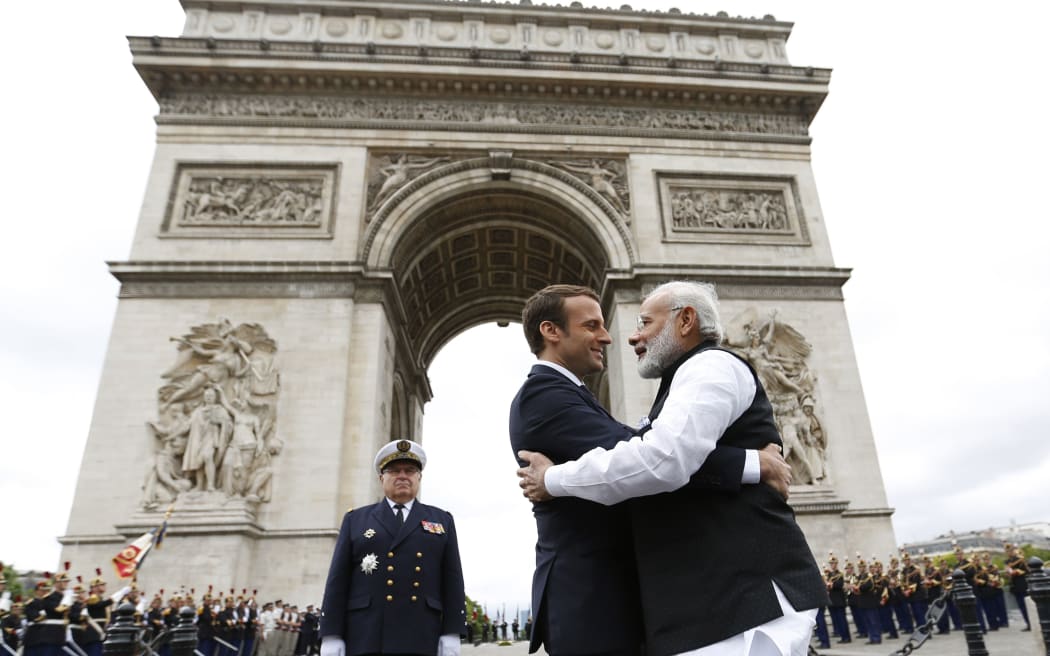
Indian Prime Minister Narendra Modi says goodbye to French President Emmanuel Macron after a ceremony at the Arc de Triomphe on the last leg of his four-nation visit in Paris. Photo: AFP
French President Emmanuel Macron met with Indian Prime Minister Narendra Modi on Saturday in Russia just days after the US withdrew from the Paris climate agreement.
Mr Modi, whose country is the world's third-biggest emissions generator, said he would continue to back the deal, which Mr Macron said was irreversible - despite US President Donald Trump's decision to withdraw.
"The protection of the environment and the mother planet is an article of faith," Mr Modi said at a joint news conference with Mr Macron in Paris.
The alliance seeks to mobilize more than a trillion dollars by 2030 and bring together well over 100 solar-rich countries to deliver solar energy to some of the planet's poorest.
Mr Macron said the alliance would lead to concrete measures in favor of solar energy and commit the companies of both nations.
"We are both convinced that our countries have to do a lot for the ecological and environmental transition and the fight against global warming," Mr Macron said, adding that France would go above and beyond its Paris agreement commitments.
He said he planned a visit to India before year-end for a first summit of the International Solar Alliance, an initiative launched by New Delhi and Paris during the Paris climate talks.
The two leaders, who were meeting for the first time, announced no actual contracts or new initiatives.
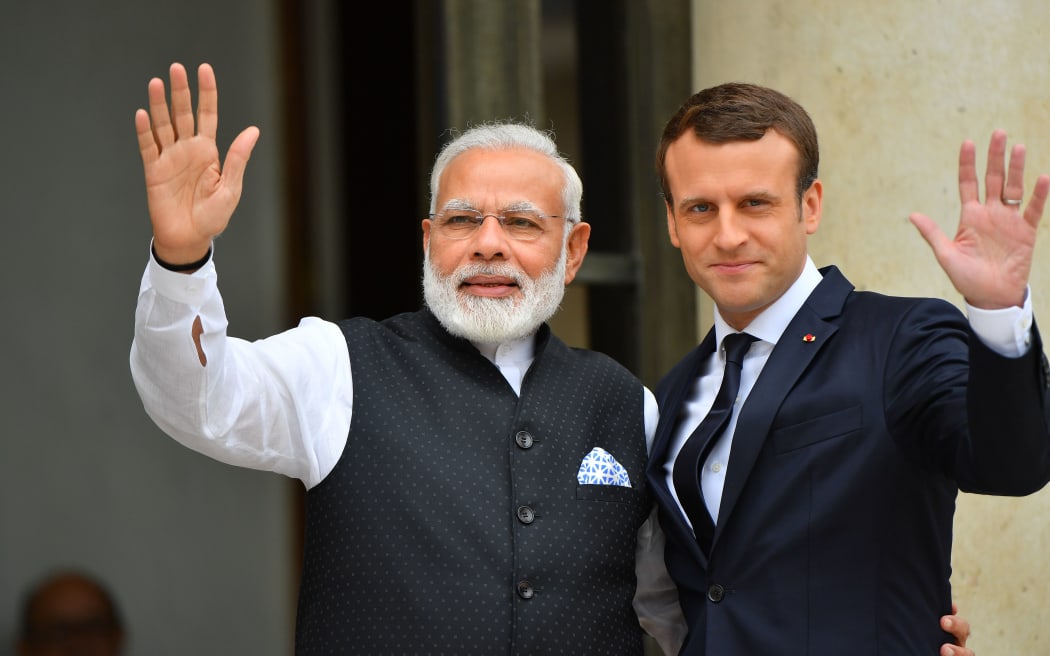
French President Emmanuel Macrons receives Indian Prime Minister Narendra Damodardas Modi in Paris. Photo: AFP
They said they had also discussed how to combat terrorism and that they would work on concrete initiatives before the end of the year to fight terrorism on the internet.
Ties between India and France have grown in recent years, most notably in the defense sector with New Delhi ordering 36 French-made Rafale fighter jets.
The two countries are also in talks about nuclear power and French utility EDF in January last year signed a preliminary pact to build six Areva-designed European Pressurised Reactors (EPR) at Jaitapur, on India's western coast.
Last month, India's cabinet approved plans to build 10 reactors of Indian design and said India would not buy foreign reactors unless they were already in operation.
Four EPRs are under construction in France, Finland and China, but all are years behind schedule and not a single EPR is in operation yet.
The Paris agreement - what it means
The Paris accord is meant to limit the global rise in temperature attributed to emissions. Only Syria and Nicaragua did not sign up.
Countries agreed to:
- Keep global temperatures "well below" the level of 2°C above pre-industrial times and "endeavour to limit" them even more, to 1.5°
- Limit the amount of greenhouse gases emitted by human activity to the same levels that trees, soil and oceans can absorb naturally, beginning at some point between 2050 and 2100
- Review each country's contribution to cutting emissions every five years so they scale up to the challenge
- Enable rich countries to help poorer nations by providing "climate finance" to adapt to climate change and switch to renewable energy
- Nasa's Goddard Institute for Space Studies says the world's average temperature has risen by about 0.8C since 1880, two-thirds of that since 1975.
- US think tank Climate Interactive predicts that if all nations fully achieve their Paris pledges, the average global surface temperature rise by 2100 will be 3.3°, or 3.6° without the US.
- Reuters / BBC
